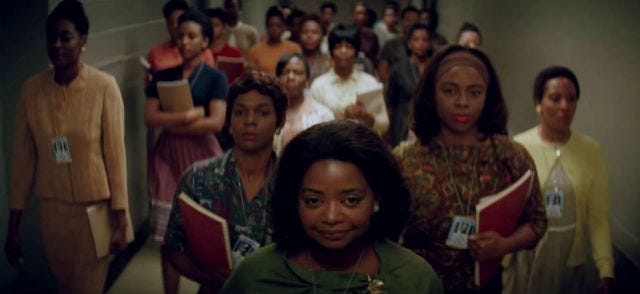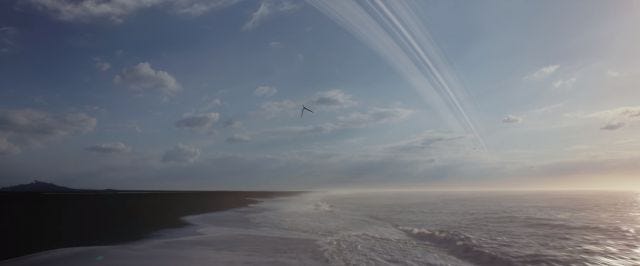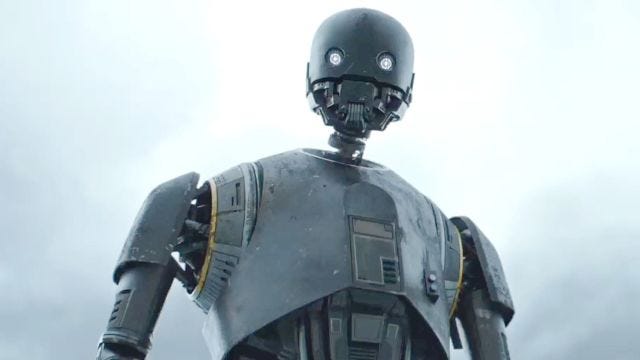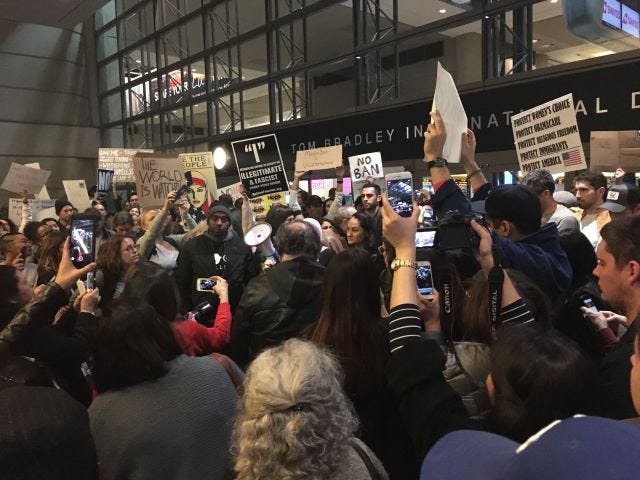EPISODE 203: MY GOD, IT'S FULL OF STARS

Peace in our Time...ish?
POP CULTURE SPIRIT WOW
So have you seen “Hidden Figures” yet? As I think I mentioned last week, I had a lot of hesitation about going, mostly because it sounded like territory that’s been really well trod. Leslie Jones from SNL, who shared my concerns, worried that it was going to be “’The Help’ in Space”.
There is a way in which that’s not an unfair critique. The true story of a group of female African American mathematicians whose work enabled the U.S. space program to make it into manned orbits around the planet and eventually, to the moon, “Hidden Figures” is a pretty familiar tale of amazing people overcoming ridiculous prejudices. The acting is great, but it hits a lot of the notes you’d expect.

And yet, boy did I love it. There’s three storylines, each of them with a different wrinkle and variation. Gender is at least as big an issue as race – actually one of the most unexpected elements of the film is how much the characters’ struggles are tied to men’s assumptions about their capacity. And it’s just so satisfying to know that it’s a true story.
In fact, more than other films of a similar message it brought home to me just how much richer our history is than we know, and how lucky we are to discover those previously white-washed pieces of the story. I mean, the space program and NASA were pretty incredible all by themselves. Who would have thought there was that much more that could be said? And yet after “Hidden Figures” I felt like there’s probably a thousand more stories to be told.
And the same goes for just about everything. A gay man invented the computer, used it to break Nazi codes and help the Allies win the war, only to be chemically castrated decades after for his orientation. Not only the computer industry but our entire way of relating to technology was later revolutionized by the son of a Syrian refugee who was also adopted. (We know him as Steve Jobs.) Walt Disney may never have become Walt Disney if not for the Hungarian-born woman who gave him his big break.
The list goes on and on. Personally, I want to see the “Hidden Figures”-stories of Native American people, who even more than African Americans, Latino, Asian or Pacific Islanders are mostly invisible in our country. Like Mary Ross, the great granddaughter of a Cherokee chief, who did some of the early design work for interplanetary space travel and on satellites; or Ely Parker, a Seneca who was Secretary to Ulysses S. Grant during and after the Civil War, became the first Native-born Commissioner of Indian Affairs and in that role helped reduce the amount of military action against Native peoples, but then somehow died in abject poverty. Or Maria Tallchief, the Osage woman who became America’s first prima ballerina.
For me, the bottom line is that our world and its history is so much more interesting than we usually give it credit for. And we’re all so much the better for learning “the rest”.

++
Given that it’s Oscar season, there’s lots of great interviews to be found with different contenders. Ted Melfi, who directed “Hidden Figures” and adapted the screenplay from the 2016 book by Margot Lee Shetterly, was recently interviewed on California public radio by L.A. film critic Elvis Mitchell. (You can listen to it here.)
And he had some really interesting things to say about optimism in the film, and why he is optimistic as an American.
My wife says I’m happy delusional. She’s given me a diagnosis. I think the world is a much better place than maybe we think it is. And I think the movie doing so well financially is a testament to that. 65% of our audience is white, and 35% is other. Right?
Everyone’s talking about how bad the country is and how divisive it is, and yes, there is that, I’m not delusional about that. But I think overall America is a great place, and it always has been a great place, and it always has been trying to get better. And as soon as they learned how to get better or learn that’s something’s wrong we try to do our best to fix it. So I have that world view, that as an optimist, we’re doing pretty good....
The whole world is set up as a no, right, if you think about it? Our whole community, our existence here, our path here in America, everything is ‘That can’t be done, that can’t be done, that can’t be done.’
I grew up dirt poor, shared a one bedroom with three brothers in Brooklyn, ate government cheese, and thought I could anything I wanted, anything in the world. And I think anyone who has that worldview, a) they have a better life and b) they get there. Katherine Johnson’s character in ‘Hidden Figures’ in particular is borne out of a lot of interviews I did with Katherine. I spent time with her, I went to visit her twice and spent hours and hours talking with her and her family. And I asked Katherine straight up, “Katherine, how was it at NASA? What was it like being a black woman at an all white male world? What was the racial and social and sexist issues that you dealt with every day?”
She looked at me like I was crazy. She said, “What? Oh no. I didn’t experience any of that. I just did my work and everyone was so nice to me.”
And I got it. Katherine Johnson had blinders on. She’s an optimist. She put her head down and she let her pencil do the work and push her forward. And that’s the message of the movie.
Some of what Melfi has to say kind of sounds like “Discrimination is only there if you let it be” – a ridiculous point of view. And discovering that while poor he is also a white male doesn’t help his case.
Still, that notion of America as a place generally trying to improve, to fix problems, to get better resonates. Last weekend’s protests are in some ways a case in point. We have an enormous problem. Now we’re going to dig in and try to fix it.
God willing and the creek don’t rise...
++
As it turns out, that wasn’t the only interesting and wonderful I stumbled upon this week. I listen to this podcast “Reply All”, which each week offers stories about human beings dealing with being human beings in an age of internets. And this week, in the last ten minutes of the show, one of their producers did a short interview with Nazanin Rafsanjani, an Iranian-American who fled Iran with her parents and sister in the 1970s.
After the government announcement last weekend that the U.S. was going to stop refugees from Iran and other countries from coming to the States, even those who had been properly vetted and in grave danger and waiting in the pipeline for years, even maybe somehow to whom we had already granted permanent residency, Rafsanjani posted this picture:

With this caption: “Does America feel great again? It’s just a lack of imagination that separates you and your children from these people.”
The “Reply All” producer asked Rafsanjani to her talk about that tweet. Here’s what she said:
That picture...I relate to them, in that I know now that desperation my parents had for leaving the country that they loved and wanted to stay in and only left because they felt they had no other option.
Someone responded to that tweet, “So what’ you’re saying is being a U.S. citizen is a human right?” And what I was trying to say is that it’s actually the opposite, it’s not actually anyone’s right, it’s just dumb luck. And I think that that’s all I was trying to say. It’s my dumb luck that I got to move here and it’s your dumb luck that you were born here. And neither of us really did anything to deserve it.
And so, saying that some people don’t deserve it and others do, it just makes no sense to me.
She went on to talk about the patriotism she’s always felt as an American: “It’s always been my most earnest feeling, I feel a little embarrassed about it. It’s never been cynical, I really have always felt ‘Yeah, you’re lucky if you live here, and it’s #!%!ing awesome to live here, and just by virtue of being here you’re one of the luckiest people on earth. I really feel that way.
And I think that feels threatened and that’s why I think I’m reacting that way.”
(About a month ago the podcast “Twice Removed” did an episode on Rafsanjani that has powerful stories from her mother, her sister, an aunt and others about how they escaped and what it was like making that decision and how they were able to stay. A lot of it Rafsanjani herself had never heard before. Well worth a listen.)
++

I’ve been saying I wanted to do one more round-up of thoughts and ideas about Rogue One (because 20+ pages before Christmas was not enough).
I’ve been keeping a list of things I wanted to talk about. Like, for instance, did you notice that when we first meet Îmwe Chirrut, the blind guardian on Jedha, he’s chanting “May the Force of Others be with you”? In the history of “Star Wars” we’ve never heard anything like that before. To me, it suggests that maybe the Force is not only something flowing through us, but something that we create by the decisions that we make. Like, fill the world with complaint and gossip and fear, and don’t be surprised when it gets all Sith-y. (Ahem.)
Be generous and hopeful, and watch how things grow.
Or, I was reading “The Art of Rogue One” – which, let’s be honest, you need, it’s fantastic, the “Art of” books for Star Wars are always filled with cool stuff – and they were talking about how Jyn was imagined as a kind of rhyme with Luke. He’s looking for a home and finds it in a war; she’s trapped in a war, looking for a way out of it to home.

One way this will blow your mind: they made Scarif (the final set of the film) a beach-y resort-like Oahu wonderland not only because it’s a kind of landscape we hadn’t seen in “Star Wars” ("But where is the Pacific Theater???" --A troll, for the last thirty years, somewhere) , but to provide a quiet sense of relief and resolution.
Jyn, having accepted her destiny, is finally coming home. (We see similar ocean near where she lived as a child, remember.)

When she decides to go to Scarif with her new team Cassian actually says, “Welcome home.”
Or that Jedha was imagined as an image of the post-Jedi (Catholic dance party remix: post-Good Friday) universe. No more Jedi, more hope, an Iraq-like constant warzone. What Obi-Wan describes to Luke as “the dark times”.
Or the amazing visual and physical symmetry of the battle of Scarif.

We’ve got the outer space layer, which is happening directly over the gate below which we have the sky and land battle, at the very center of which is Jyn and Cassian’s quest to get the plans and send them from the center-most point, the satellite dish, back up to the main ship. When the destroyers crash together we even get a visual of one of them pointing straight down at the base, like a huge arrow.
Or the actually really good reason why Wedge Antilles could not have been at the Battle of Scarif.
So I’ve been waiting to do that until what seemed like the right moment. But then in the last oh, I don’t know, two weeks?, it’s started to seem like all the right moments have left on work visas and are not likely to be allowed back into the country anytime soon.
Then yesterday I read a take on “Rogue One” from British comic book writer Kieron Gillen, and it pretty much has to be shared.
I started Sunday Morning with the 11am showing of Rogue One at South London cultural institution that is the Peckham Plex. It was the last showing. It was one of the last showings in London. It's the first time I've seen a film twice in the cinema since Fury Road.
I like it a lot. My one-line tweet review ROGUE 10/10 captures my basic feelings, but second time through, things are always going to change. You can't cross that river twice. You change. The world changes. In the last month, more than most.
But I found it as effecting as first time, on average. Some bits more, some bits less, over-all similarly wet eyed. But it's lingered in a different way. First time, I came out in a giggly fanboy rush. Second time, I'm pretty much crushed.
Being a working writer, I'm unpacking and trying to reversely analyse choices, and doing my own rewrites to make what I think the effect it's looking for more efficiently. It's just something I do, and have done for the vast majority of my life. It's certainly true towards the end the tangle of game-logic makes it top heavy, and (as always happens when you explain so much) leads to even more questions . You can question the integration of all those fighter pilots into the final act, leaning into the "not a star wars film unless there's a dogfight at the end" (I felt them weakest bits of Force Awakens, but landed better here for reasons I'll go into...)
But underneath all that, I can't question it too much, as I see its point and the reasons for doing so. That's why we talk about choices, as it's really about what you choose to prioritise. It's all done to make the movie turn into a relay race, a chain of buckets. If any one individual doesn't do their small thing, it fails, and the future for a galaxy far, far away is the Empire's jackboot, forever.
This rebellion isn't about one kid getting a lucky shot . This rebellion is about all those individual choices and moments of heroism enabling the kid to get to a place to take that shot. It is many Bothans, writ large. None of the people who died knew that what they did made a difference. Some knew if they hadn't done it, it'd have failed... but none knew for sure. They went to their graves ignorant. It could have all been for nothing.
To that end, the ballooning of viewpoint characters becomes the point, those pilots as real as anyone else, the actors commitment to those fragments of time meaningful. And as we pull away from our cast, we come to the final scenes, with those nameless Rebellion troops being cut down by Vader, one by one. Look at the details as Vader looms out the dark. The half-lowering of the gun as each consider just not doing this.. and then raising as they decide they have no choice.
Any of them didn't slow down Vader for a half second, the Death Star survives. Any of them.
Which leaves me aware that's all we can do when facing fascism in the dark. We have no idea if what we do make a difference. But it may. You have to believe it may.
Imagine Sisyphus watches the boulder tumble back, time and time over. Imagine the centuries, millennia of frustration. Imagine taking a breath, stepping up to its familiar form, and rolling that boulder again.
You wonder why he does so.
He knows that, against all his history, one day maybe the boulder won't tumble back.
Hope is all we have, but hope - whether new or old – can be cruel.
Kieron always likes to end by breaking your heart.
*shakes fist, begs him to continue*

++
One last thing to share this week.
I have this friend who’s always saying he doesn’t believe in Heaven. “When you die you die and that’s it.” (I’ve heard him say this a million times.) He does believe in God, but honestly, he doesn’t really get the whole Jesus thing.
Oh, and he’s a Catholic priest. In fact, I think he’s been a priest for something like forty years. And he says Mass every single day. And he has pretty much bar none the best homilies of anyone I’ve heard in the last ten years. (And just to be clear, those homilies are not about how death is the end of everything so you better enjoy while it lasts.)
I was with this guy not long ago at a dinner where he mentioned his views. Someone else present, also a priest, was dumbfounded. “If you don’t believe in Heaven, what are you doing here?” he asked. “And what do you mean you don’t know what to do with Jesus?”
I’m sure a lot of people would ask these questions, and maybe be troubled by this priest’s words.
But I have to say, every time he talks like this, I feel reassured. In fact, I feel like I’ve suddenly stumbled into a home for myself I didn’t even know was there. Not because I agree with him; I don’t.
No, it’s because he is okay with who he his. He’s past the point where he feels like he has to make sense to anyone; in fact I think he’s probably come to believe that that way of thinking is just nonsense. People are not five paragraph essays, where every piece is supposed to connect and add to one coherent and clear argument. People are people, and however that looks, that’s okay.
“Do I contradict myself? Very well, I contradict myself. I contain multitudes,” Walt Whitman writes.
Phew! I thought it was just me.
++ LINKS ++
Thanks to Chris Kent for this amazing story from NPR about George Michael’s classic song “Freedom! ‘90”, which is basically “Hey, let’s be English nerds with George Michael!” (Actually it has a pretty powerful conclusion to it.)
Thanks also to Chris Kent for writing me after the weekend to say, “I feel like after the events of the past week, I should issue a retraction on almost everything I said in this conversation.”
I feel like I speak for everyone when I say, yes, Chris, you absolutely should, this is all your fault. And also, do you now believe it is going to be the robots?

Thanks also to Budweiser – a phrase that I have never uttered before and cannot imagine returning to again anytime soon – for this Super Bowl ad. I can’t imagine they knew how well it would fit the world when it dropped, but boy does it.
(And yes, the moral of the story is that in our new world not only can we not have nice things, we cannot have Budweiser.)
Also, in the dark moments there is still Mark Hamill.
++
One of the best lines in “Hidden Figures” goes to Kevin Costner, who delivers a solid performance as the guy in charge of making the space program happen.
“We all get to the peak together,” he says, “or we don’t get there at all.”
Right now “together” is looking pretty dicey. But I have to say, going to a protest at LAX on Saturday, I found a community that made me realize I'm hardly travelling this road alone. And neither are you.


